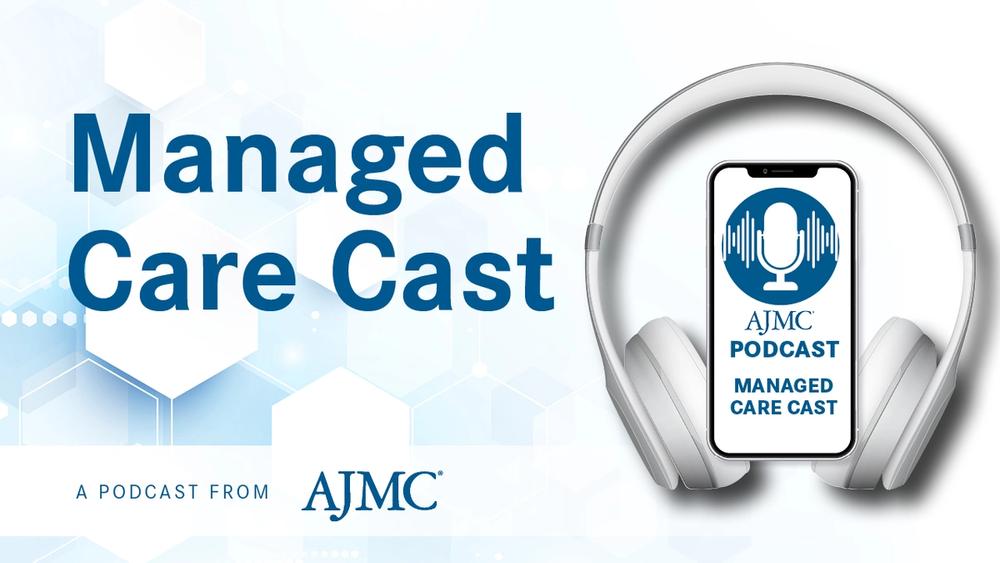News
Article
Oncology Practices Keep Pace With PBMs, in Court and Beyond
Author(s):
This panel at the Community Oncology Alliance conference discussed the impact of pharmacy benefit manager (PBM) response to the end of direct and indirect remuneration fees, which has been dramatic cuts to cancer drug reimbursement.
It’s not like they hadn’t seen it coming.
Last fall, a CMS rule went into effect to ban a fee on prescription drugs called direct and indirection remuneration (DIR), which pharmacy benefit managers (PBMs) had used to collect fees from oncology practices months after a drug had been dispensed. Because these fees are assessed so long after the practice had been paid for the prescription, it had been impossible for practices to know they would be “under water” for a given drug until it was too late.
Kathy Oubre, MS | Image credit: LinkedIn

As Kathy Oubre, MS, CEO of Pontchartrain Cancer Center put it, many in community oncology were cautiously optimistic about the new rule—but they had heard the warnings from Community Oncology Alliance (COA) Executive Director Ted Okon, MBA, that if DIR fees expired, the PBMs would get their money some other way.
That “way” turned out to be drastically lower payments for certain drugs, especially from a handful of Centene plans where Express Scripts had recently taken over as the PBM. “Lo and behold, on January 2 of this year, Ted was exactly right,” Oubre told the audience gathered for the second day of the COA Community Oncology Conference. “Why, it was lower than we had ever thought.”
Oubre chaired the COA panel, “The Post-DIR Hangover: Underwater Reimbursement and Challenges,” which featured fellow veterans of the PBM battles:
- Jonathan Levitt, JD, of the law firm Frier Levitt, who has frequently sued PBMs
- Jeff Mortier, of the lobbying firm Faragut Partners
- Jeffrey Vacirca, MD, FACP, of New York Cancer & Blood Specialists, which has been a litigant against PBMs
While practices have had challenges with PBMs for many years, the particular phenomenon of DIR fees arose around 2016. Levitt explained that while fees started out between 4% and 6% and climbed from there, this was a huge problem. “It would kill the margin,” he said. “So, we started asking questions, we would file arbitrations…. I’d say, ‘How do you justify these fees?’”
Levitt shared the many answers he received: Fees were a medication adherence program designed to improve Medicare star ratings; if so, the practices argued, they were ill-suited to oncology, whose physicians don’t prescribe chronic disease medications. Then, PBMs said the fees were a program to reduce patient premiums. “Although none of the money was used to reduce premiums, it just was pure profit,” Levitt said.
With the end of DIR fees, Oubre noted that patients have seen a 3% premium increase, while specialty providers who dispense their own medications—including oncologists—have seen drastic cuts in reimbursement. But Levitt pointed out that other changes that put caps on catastrophic costs generally improve the picture for Medicare beneficiaries.
View in Congress. Mortier shared how Congress’ view of PBMs has evolved in recent years. From the first briefing on March 14, 2020, just before everything shut down due to COVID-19, to today, Congress has become more educated about the effects of vertical integration generally and PBMs in particular, he said. “It has been incredible to watch the evolution of Congress with PBMs,” he said. “It’s a household name for members of Congress. It’s a bipartisan issue, which is not common these days. Everyone wants to figure out how to do it.”
A major complaint about DIR fees—and about PBM behavior generally—is that that there is no way to predict hits to the bottom line; despite their inquiries, oncologists were given no directives on how they could make changes to avoid fees. Similar complaints have been made about rebate practices.
Thus, transparency seems to be the issue with the most traction, and PBMs don’t aren’t even fighting it these days, Mortier said. And Congress’ “default position” is they don’t trust PBMs, which he said, can be seen in routine votes if the name is uttered.
Vacirca’s individual battle over DIR fees traces to August 2021. “The clawbacks were killing us,” he said. The practice sent a demand letter to CVS Caremark to negotiate, which was ignored. Next came arbitration, which required extensive preparation but led to an award, which is waiting for confirmation from a federal judge.
“The panel concluded that Caremark’s DIR fee program was in bad faith” Levitt added. “In presenting the case, I never used the word bad faith, and I never said anything extreme. The panel concluded it was in bad faith.”
During arbitration, it was revealed that Caremark’s program compared the risks and adverse effects of the cholesterol medication atorvastatin to various oral oncolytics; Levitt said Vacirca calmly explained the profound differences between the 2 classes of medication. The arbitration panel, Levitt said, concluded “that Caremark had a willful disregard for any understanding of oncology medication.”
Oubre highlighted that based on the judge’s past practice, confirmation of the arbitration award by an upcoming April 27, 2024, deadline seems likely. Vacirca noted that award accrues 9% interest a month, “so I'm not complaining too much.”
What’s more exciting, he said, is that the judge’s action will give Levitt—and community oncology more broadly—a landmark precedent to pursue additional arbitration actions.
Post-DIR Challenges
Cuts to reimbursements since the start of the year by Express Scripts mean practices must choose whether to dispense some drugs at a loss. Vacirca said the law is supposed to allow fair compensation for dispensing and right now that’s not happening. Cigna may own Express Scripts, he noted, but many other payers used this PBM, expanding the chances of drugs being under water. “There’s probably no one in this room, probably no one who's outside the room, that doesn't have a pretty remarkable case,” he said.
Oubre turned back to the recent efforts to include PBM reforms into the budget deal that passed in March, which seemed to be making progress but then fell short. She asked Mortier about the likelihood of passage this year.
He predicted that a major package will come together during the “lame duck,” or the period after the election. “Obviously, it depends on what happens with the White House,” or if there’s a shift in the Senate or the House. Given the consensus for reform, he said, “once these policies are on the list, they're really hard to knock off. And there will be PBM reform, you know, whether it happens in this lame duck or whether it happens next congress, if there's bipartisan agreement, we call it the 4 corners, which means House and Senate committees have authorizers that have all agreed.”
Mortier clarified that while PBM transparency will be the easiest piece to pass, reform won’t stop there. The Senate Finance Committee is committed to steps to ensure greater accountability, as well as health care steps outside PBMs such as treatment site neutrality.
As for the current reimbursement situation, Levitt noted there are already laws that state reimbursement must be “reasonable and relevant,” and if rates are under water, CMS will have to step in. He strongly encouraged providers to file complaints with CMS—and has drafted a sample form available through COA. If patients can no longer get their cancer drugs through their oncologist because of PBM behavior, they should complaint, too. Complaints matter, Levitt said, because if they affect a plan’s Star rating, that can cause a significant drop to the bottom line.
Levitt also highlighted the recent lawsuit, Lewandowski v Johnson & Johnson, a potential class action that represents the first time an employee is suing over an employer’ failure to exercise its fiduciary responsibility over health benefits due to PBM behavior.
Both Oubre and Vacirca emphasized the need for COA members to write and call their members of Congress and remind them of their positions on all these issues. Oubre said even if a doctor can’t travel to Washington, DC, for COA’s Hill day, a phone call makes a difference.
“Let’s not forget about successes, right?” Vacirca said. DIR fees are no longer in contracts, he said. “There’s now a glaring light on what PBMs have been doing. We are an incredibly powerful unit together.”
“The power that they can see, because when I first started working on the hill, I remember one of your comments to me--if they don't hear from us, they're hearing from the other side,” Oubre said. “But we've got to be there to stand up for the patients and our practices and dispel the myths.”
Newsletter
Stay ahead of policy, cost, and value—subscribe to AJMC for expert insights at the intersection of clinical care and health economics.

PROs Affirm Zongertinib’s Combination of Strong Response Rates With Low Toxicity

The Importance of Examining and Preventing Atrial Fibrillation



